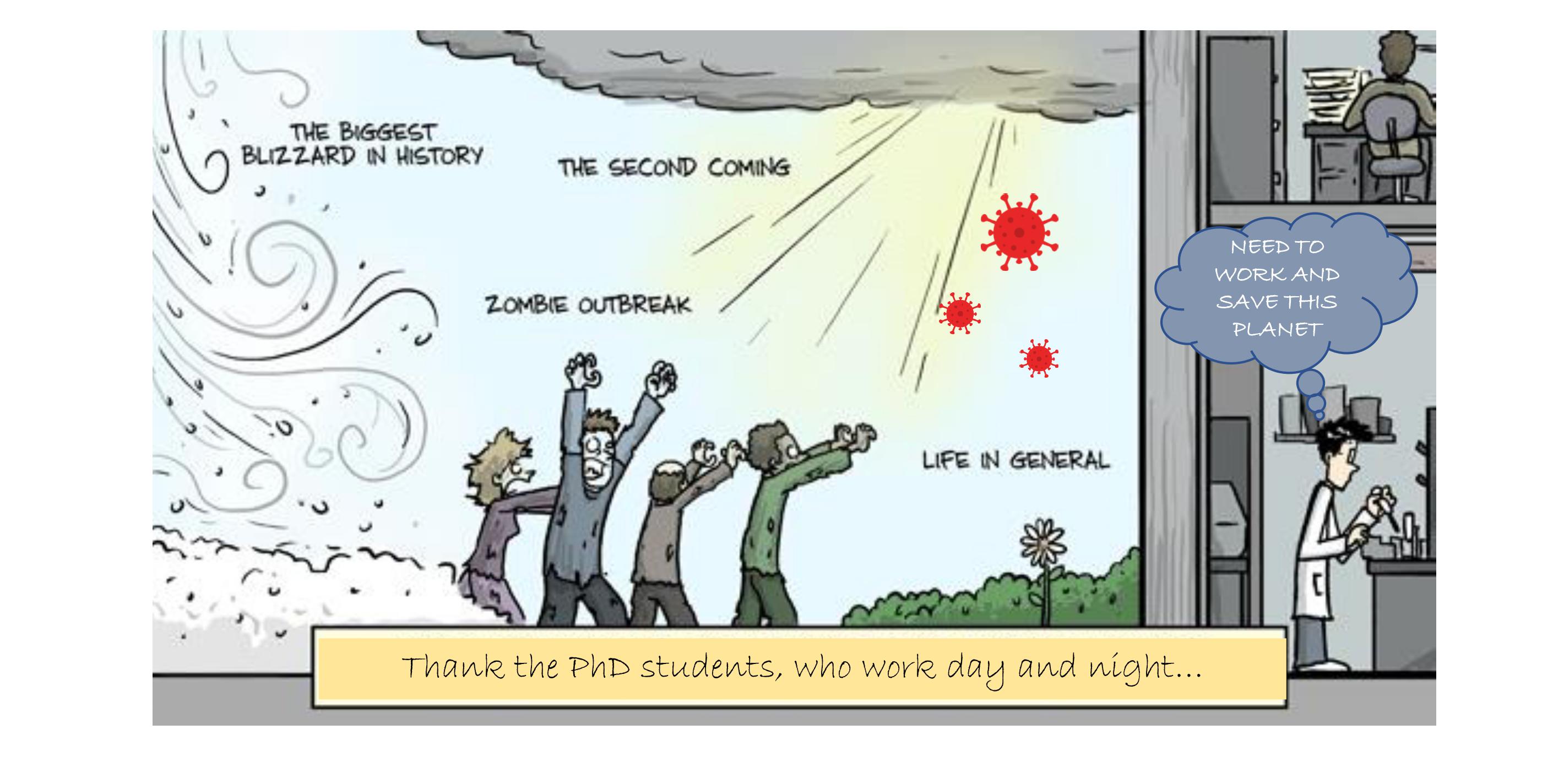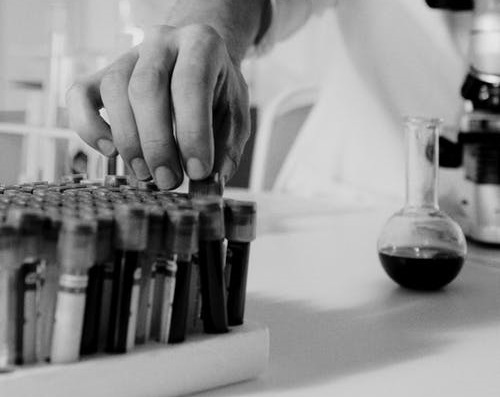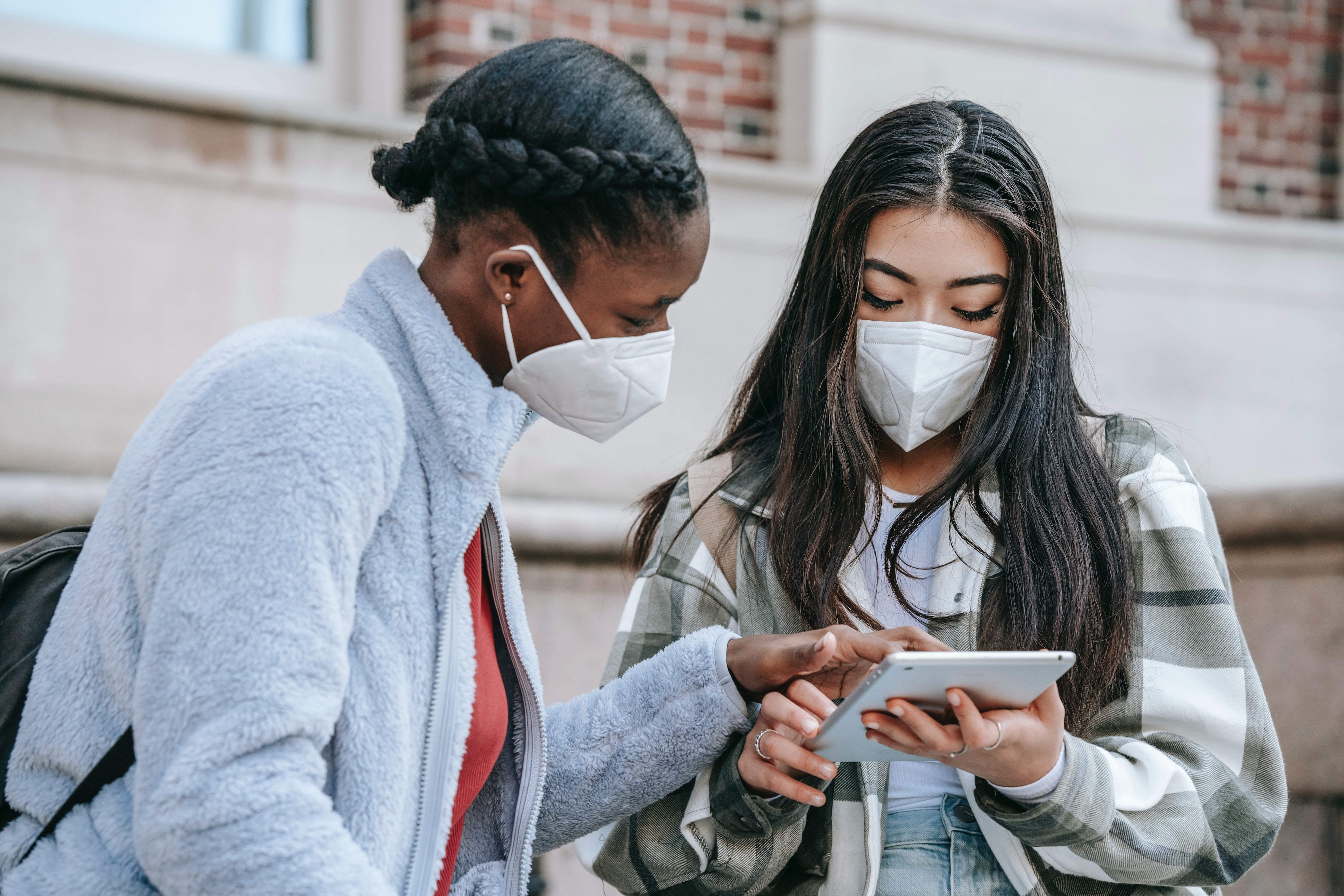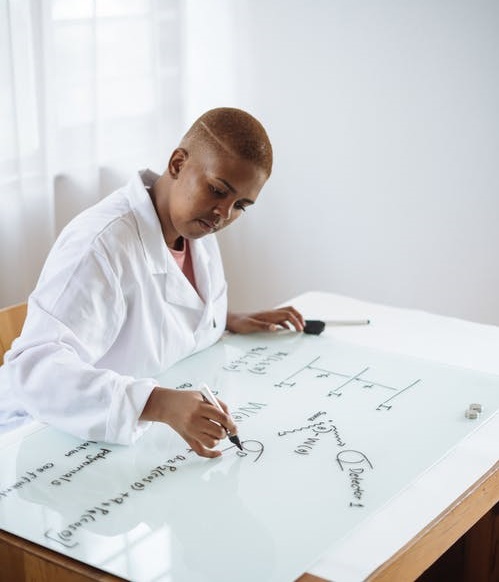A Generation of Lost Researchers
Perspective
Raunak Dey
 No danger - Ph.D. students at work
No danger - Ph.D. students at work
A young research scholar’s point of view on the plight of the careers and mental health of his peers and colleagues, as the pandemic ravaged the globe.
Tweet
COVID-19 has changed the way we interact in this and with this world. It has affected jobs, disrupted the global economy in the process, killed millions, and negatively impacted billions of lives. While the utter devastation brought down on us by this harrowing pandemic has been widely cultured by the media for more than a year, the problems faced by early-career researchers in a developing country like India hasn’t received enough attention.
The young scientists in India have received a massive setback in their ongoing research, career, and mental health. “COVID-19 has created a generation of lost researchers”, lashes Dipti, who has been waiting for countries to lift their travel ban on Indian commuters so that she can join her post-doctoral research position in Canada. Rupesh is attending a Ph.D. program at Cambridge; he has booked his accommodation and paid a hefty security deposit to lease the apartment. Then came the travel ban. “How would I manage to sublease it now!” says a dejected Rupesh, simultaneously waiting to get a refund on the canceled flight. On the other hand, Viki is waiting for a year to join his Physics Ph.D. programs due to the travel ban and unavailability of visa slots. The consulates all closed their operations after the second wave of Covid-19 stormed India. A career in science has an extensive gestation period, so this gap year has taken a significant toll on his overall mental health. He has already invested too much time, energy, and most importantly money in the process and can’t just step back now. These are not solitary examples, but how the situation of outgoing students of this country looked, even a few months back, searching for advanced and well-funded research opportunities.
 Credits: Artem Podrez, Pexels
It has been worse for Ph.D. students in India due to myriad problems. “I need to perform experiments for the review provided by the referee, but the labs are closed,” says Avijit in a tense voice. The review process is also taking longer than usual time, delaying the publication
of his papers. Indeed, these people who toil hard every day, suddenly found themselves amidst a pandemic, trapped inside a sealed campus with closed laboratories. The security staff who monitor the gates, the people who run the canteen, and the janitors – cannot come to the campus. So the onus fell on the students to take care of almost everything in a campus more than 100 acres in size. They did not complain, but even took time out of their engaging schedule and volunteered to help the indigent local community around the campus with food, supplies, and medicines. However, even after all this, if their principal pursuit in life becomes compromised – a gnawing feeling of helplessness, ultimately leading to acute pathological depression may not be far away. Ph.D. funding generally expires after a stipulated time, and these researchers have already lost a year. So Abdul, a Ph.D. student, being the only earning member of the family, decided to quit his Ph.D. and look for a job. Even people who had funding remaining didn’t receive their stipends or contingencies on time. It particularly became hard for Ramesh, who started his family during his Ph.D. and has a kid at home. He claims to have not received his CSIR/UGC fellowship for many months now. With the lack of direct benefit transfer, that’s been the routine for fund distribution for Ph.D. students in India. Priti works in a behavioral biology lab, studying the population of zebrafish for ecological purposes. She said, “even if the lab is sealed, I need to come here every day on special permission to feed the fish.” She needs to be there at the institute, while worrying about her COVID positive father residing in a different state. Preeti’s father got lucky, but Avik’s mother did not share the same fate. Avik flew back to India from Germany, taking a sudden leave from his postdoctoral position in a desperate attempt to save his mother. Tragically, all his efforts were lost in vain.
Credits: Artem Podrez, Pexels
It has been worse for Ph.D. students in India due to myriad problems. “I need to perform experiments for the review provided by the referee, but the labs are closed,” says Avijit in a tense voice. The review process is also taking longer than usual time, delaying the publication
of his papers. Indeed, these people who toil hard every day, suddenly found themselves amidst a pandemic, trapped inside a sealed campus with closed laboratories. The security staff who monitor the gates, the people who run the canteen, and the janitors – cannot come to the campus. So the onus fell on the students to take care of almost everything in a campus more than 100 acres in size. They did not complain, but even took time out of their engaging schedule and volunteered to help the indigent local community around the campus with food, supplies, and medicines. However, even after all this, if their principal pursuit in life becomes compromised – a gnawing feeling of helplessness, ultimately leading to acute pathological depression may not be far away. Ph.D. funding generally expires after a stipulated time, and these researchers have already lost a year. So Abdul, a Ph.D. student, being the only earning member of the family, decided to quit his Ph.D. and look for a job. Even people who had funding remaining didn’t receive their stipends or contingencies on time. It particularly became hard for Ramesh, who started his family during his Ph.D. and has a kid at home. He claims to have not received his CSIR/UGC fellowship for many months now. With the lack of direct benefit transfer, that’s been the routine for fund distribution for Ph.D. students in India. Priti works in a behavioral biology lab, studying the population of zebrafish for ecological purposes. She said, “even if the lab is sealed, I need to come here every day on special permission to feed the fish.” She needs to be there at the institute, while worrying about her COVID positive father residing in a different state. Preeti’s father got lucky, but Avik’s mother did not share the same fate. Avik flew back to India from Germany, taking a sudden leave from his postdoctoral position in a desperate attempt to save his mother. Tragically, all his efforts were lost in vain.
 Credits: Charlotte May, Pexels
The campus became melancholic. The senior students are trying to restrict themselves to maintenance work only, following strict regulations imposed by the authorities. The younger students are still at home trying to attend classes and submit their assignments on time, struggling with volatile internet connections. Rishi, a MS student, who could hardly finish a thesis; now wonders about his new Ph.D. applications. Some professors in Europe would rather recruit a second preference student for an open position than wait for the best-in-class Indian researcher with a delayed joining date. He sits at home and questions all the decisions he ever took. He is a bright student but slowly sinks into depression and self-doubt - he is seeking professional help.
Credits: Charlotte May, Pexels
The campus became melancholic. The senior students are trying to restrict themselves to maintenance work only, following strict regulations imposed by the authorities. The younger students are still at home trying to attend classes and submit their assignments on time, struggling with volatile internet connections. Rishi, a MS student, who could hardly finish a thesis; now wonders about his new Ph.D. applications. Some professors in Europe would rather recruit a second preference student for an open position than wait for the best-in-class Indian researcher with a delayed joining date. He sits at home and questions all the decisions he ever took. He is a bright student but slowly sinks into depression and self-doubt - he is seeking professional help.
In spite of all psychological and situational impediments, these brave-hearts go on, analyze the protein of SARS-COV2, or calculate if airflow indeed affects the dissemination of the virus. Research can’t wait. They run the gels, plot the data, analyze the results, or try to come up with a DIY version of affordable ventilators. How can they do that? Maybe because they are by instinct problem solvers, trained to judge everything objectively. Their education and life in science has trained them to do so. They may be “a little lost” for now, but hopefully, they will find their way out of this mass dystopia.
India needs them to.
Otherwise, the price of the pandemic will be virtually never-ending, with the future incurring larger damages than what the present can even imagine.
[Some names have been changed to maintain anonymity]
 Credits: Pexels
Credits: Pexels
Raunak Dey graduated from IISER Kolkata in 2020 with a BS-MS in Physics and is currently pursuing a Ph.D. in Physics at Georgia Tech, USA.
signup with your email to get the latest articles instantly